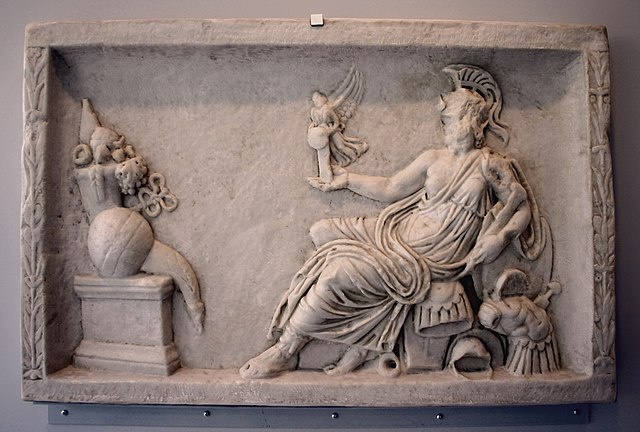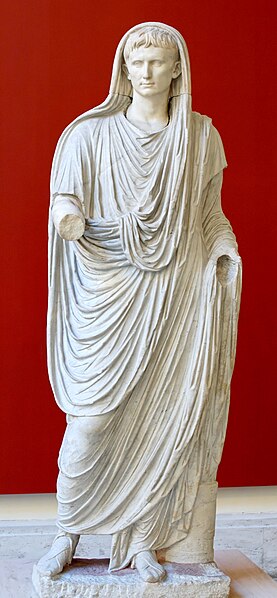Diana is a goddess in Roman and Hellenistic religion, primarily considered a patroness of the countryside and nature, hunters, wildlife, childbirth, crossroads, the night, and the Moon. She is equated with the Greek goddess Artemis, and absorbed much of Artemis' mythology early in Roman history, including a birth on the island of Delos to parents Jupiter and Latona, and a twin brother, Apollo, though she had an independent origin in Italy.
Diana as Huntress. Marble by Bernardino Cametti, 1720. Pedestal by Pascal Latour, 1754. Bode Museum, Berlin.
Statue of Diana-Artemis, fresco from Pompeii, 50–1 BCE
Diana Hunting, Guillaume Seignac
Diana as Personification of the Night. Anton Raphael Mengs, c. 1765.
Religion in ancient Rome consisted of varying imperial and provincial religious practices, which were followed both by the people of Rome as well as those who were brought under its rule.
Defaced Dea Roma holding Victory and regarding an altar with a cornucopia and other offerings, copy of a relief panel from an altar or statue base
Augustus as Pontifex Maximus (Via Labicana Augustus)
Cybele enthroned, with lion, cornucopia and Mural crown. Roman marble, c. 50 AD (Getty Museum)
Relief panel from an altar to Venus and Mars depicting Romulus and Remus suckling the she-wolf, and gods representing Roman topography such as the Tiber and Palatine Hill








